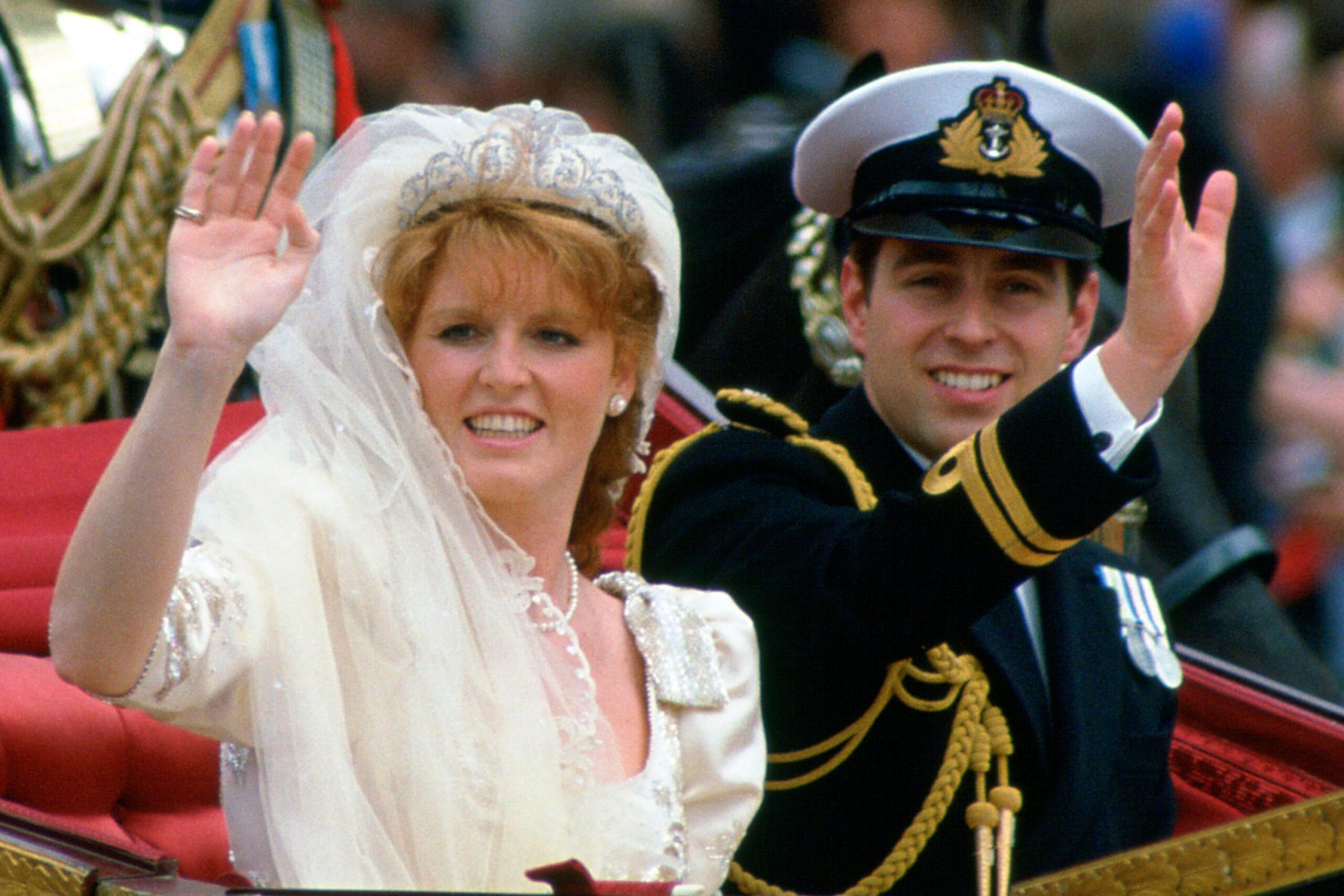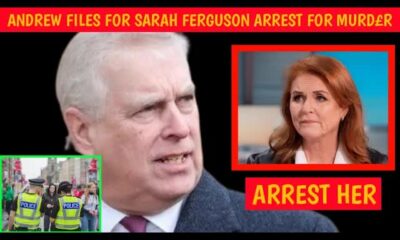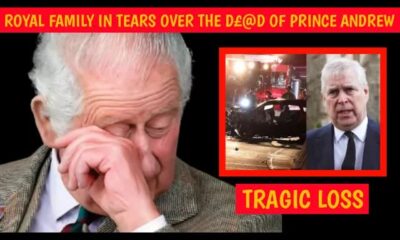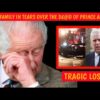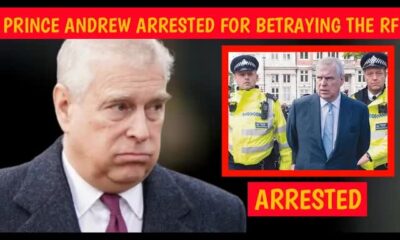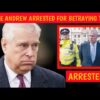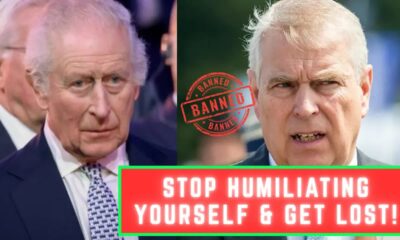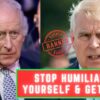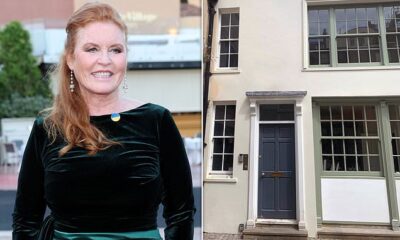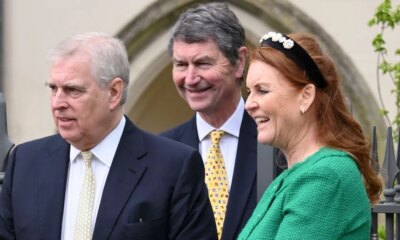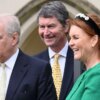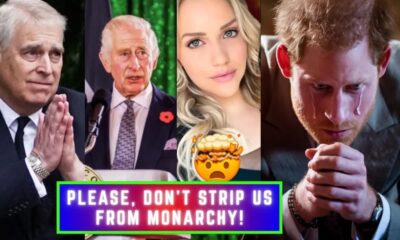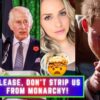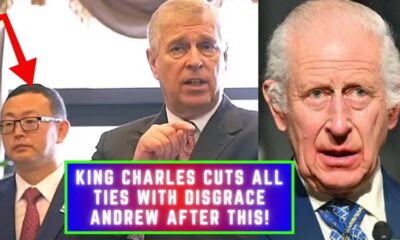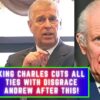Must Read
### Prince Andrew: A Royal Liability in a Changing Monarchy
Prince Andrew, the Duke of York, finds himself in a precarious position that has shifted from royal duty to an embarrassing display of denial.
His stubborn insistence on maintaining his royal privileges seems increasingly out of touch with the reality surrounding him.
While the monarchy faces mounting scrutiny, Andrew clings to the belief that his title somehow grants him immunity from accountability.
This mindset not only reflects his arrogance but also highlights a troubling disconnect from the expectations of modern royalty.
The situation has become untenable, as Andrew's blatant disregard for established protocol and decency continues to alienate him from the public.
Once a figure of goodwill, he now embodies everything the contemporary monarchy must work to distance itself from.
The public has grown weary of his indifference to serious allegations, and sympathy for him has all but evaporated.
His refusal to scale back his lavish lifestyle, especially when compared to other royals like Prince William and Princess Anne, showcases a profound sense of entitlement.
Despite numerous scandals and relentless media scrutiny, Andrew seems to believe that he is owed something by the world.
This mindset persists even as public opinion shifts against him.
His royal lodge, a sprawling 31-room mansion valued at $38 million, has become a glaring symbol of royal excess.
As millions in the UK grapple with financial hardships, Andrew's opulent lifestyle stands in stark contrast, further tarnishing the royal family's image.
King Charles III is striving to modernize the monarchy and restore its relevance, yet Andrew's obstinacy poses a significant hurdle to these efforts.
His continued insistence on living in luxury, while the monarchy attempts to navigate a rapidly changing landscape, creates a public relations disaster.
The Duke of York's actions challenge the very principles that the royal family seeks to uphold, undermining the trust and dignity that are essential to its survival.
Andrew's lifestyle is not just a personal choice; it has become a contentious issue for taxpayers who bear the financial burden of his extravagant security detail.
With serious allegations hanging over him, many question why the public should continue to fund his lavish existence.
His refusal to acknowledge the gravity of his situation only serves to amplify the perception that he is out of touch with the realities faced by ordinary citizens.
The Duke's persistent denial extends beyond his lifestyle choices; it permeates his interactions with the media and the public.
When confronted with accusations from Virginia Giuffre, he vehemently denied any wrongdoing instead of showing remorse or empathy.
This defensive posture reinforces the notion that he is unwilling to take responsibility for his actions, further alienating him from the royal family and the public.
King Charles has repeatedly urged his younger brother to reconsider his extravagant lifestyle, but Andrew's defiance only seems to grow stronger.
The King is left grappling with the dilemma of family loyalty versus the pressing need to protect the monarchy's reputation.
As Charles faces increasing scrutiny during his reign, allowing Andrew to continue unabated would seem to endorse the very behaviors the monarchy aims to distance itself from.
The shadow cast by Andrew's scandals is long and damaging, and no amount of denial can erase the reputational blow to the royal family.
While the monarchy may endure, the scars left by Andrew's actions will likely linger for years to come.
His refusal to adapt or change is dragging the institution down, creating friction between family ties and public duty.
As King Charles contemplates drastic measures, including potentially stripping Andrew of his royal allowance, the stakes have never been higher.
The challenge lies in severing ties with Andrew without fracturing the family unit entirely.
This struggle symbolizes the broader challenges the monarchy faces as it attempts to modernize and move past its scandal-ridden history.
Andrew's inability to recognize the gravity of his public image is perhaps the most ironic aspect of his situation.
He clings to a self-image as a loyal royal, oblivious to the fact that his titles and privileges have become liabilities rather than assets.
His lack of self-awareness is striking, as he continues to make public appearances, seemingly unfazed by the whispers and judgment that follow him.
His decades-old nickname, “Randy Andy,” once a playful jab, has taken on a darker connotation due to his connections with Jeffrey Epstein.
This legacy of poor judgment and reckless behavior only deepens the public's disdain for him.
Despite the mounting pressure to change, Andrew appears resolute in maintaining his lavish lifestyle, attending elite events, and engaging with the upper echelons of society.
The financial implications of Andrew's lifestyle extend beyond mere extravagance; they drain resources that could be better allocated.
His insistence on remaining at royal lodge is not just about comfort but serves as a tangible reminder of his status.
For the public, it starkly illustrates the divide between royal privilege and the struggles faced by everyday citizens.
Ultimately, Andrew's refusal to adjust his lifestyle, coupled with his extravagant spending habits, is not just a personal failing; it's an affront to the very people who have supported the monarchy for generations.
As King Charles strives to redefine the royal family's image, Andrew's actions remain a significant obstacle, raising the question of whether the monarchy can truly evolve while tethered to such a controversial figure.
